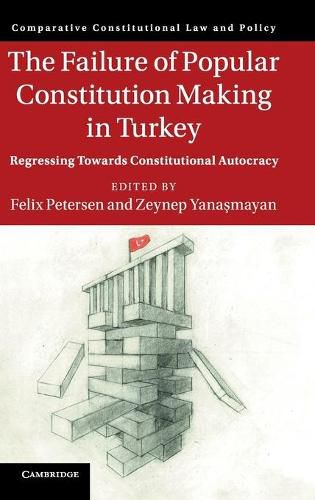Readings Newsletter
Become a Readings Member to make your shopping experience even easier.
Sign in or sign up for free!
You’re not far away from qualifying for FREE standard shipping within Australia
You’ve qualified for FREE standard shipping within Australia
The cart is loading…






This book offers an in-depth account of the failure of popular constitution making in Turkey from 2011 to 2013, which was an anomaly in the otherwise authoritarian history of Turkish constitutional politics. The authors demonstrate that, even in unfavorable conditions, constitution making that brings together different stakeholders can potentially lead to significant improvement of constitutional regimes. Long-standing societal divides regarding cultural and religious diversity, which were evident in political parties’ negotiations, played a significant role in the failure of the process in Turkey. Most notably, the ruling AKP’s insistence on establishing a presidential system - supported by neither other political parties nor the public - destabilized the process and exacerbated distrust among the drafters. Unfavorable procedures, particularly an unrealistic deadline and the unanimity principle, prevented consensus and allowed the AKP to hijack the process. The process was a missed opportunity for democratization before Turkey plunged into full-fledged democratic backsliding.
$9.00 standard shipping within Australia
FREE standard shipping within Australia for orders over $100.00
Express & International shipping calculated at checkout
This book offers an in-depth account of the failure of popular constitution making in Turkey from 2011 to 2013, which was an anomaly in the otherwise authoritarian history of Turkish constitutional politics. The authors demonstrate that, even in unfavorable conditions, constitution making that brings together different stakeholders can potentially lead to significant improvement of constitutional regimes. Long-standing societal divides regarding cultural and religious diversity, which were evident in political parties’ negotiations, played a significant role in the failure of the process in Turkey. Most notably, the ruling AKP’s insistence on establishing a presidential system - supported by neither other political parties nor the public - destabilized the process and exacerbated distrust among the drafters. Unfavorable procedures, particularly an unrealistic deadline and the unanimity principle, prevented consensus and allowed the AKP to hijack the process. The process was a missed opportunity for democratization before Turkey plunged into full-fledged democratic backsliding.